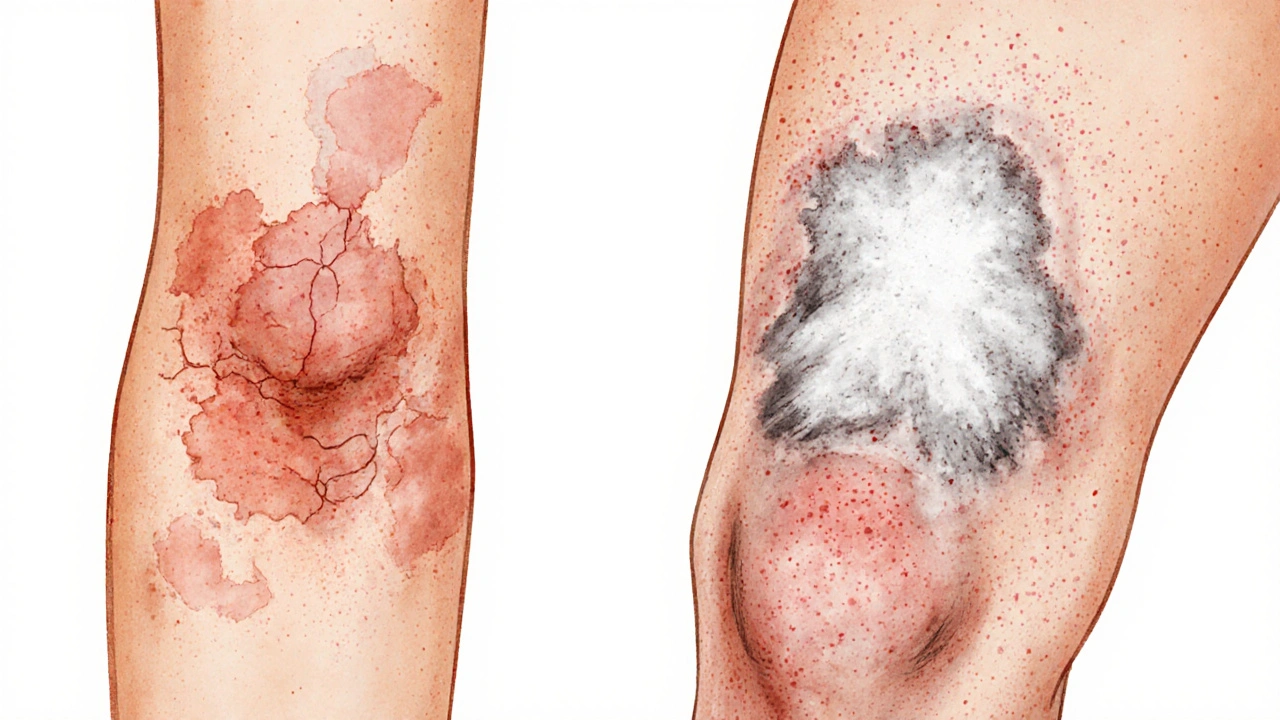When your skin turns red, itchy, and scaly out of nowhere, it’s often an eczema rash, a chronic skin condition marked by inflammation, dryness, and intense itching. Also known as atopic dermatitis, it doesn’t just appear randomly—it’s your body’s reaction to triggers like stress, sweat, harsh soaps, or even certain fabrics. Unlike a simple irritation, eczema rash tends to come back, especially in folds of skin like elbows, knees, and necks. It’s not contagious, but it can feel isolating when flare-ups disrupt sleep, work, or daily routines.
What makes eczema rash tricky is how it connects to other things. Your skin barrier, the outer layer that locks in moisture and blocks irritants is often weakened in people with eczema, letting allergens and bacteria sneak in. That’s why moisturizers aren’t just nice to use—they’re essential. Then there’s the immune system, the body’s defense network that overreacts in eczema, causing inflammation even without real threats. Some treatments target this overreaction directly, like topical calcineurin inhibitors or newer biologics. And let’s not forget trigger factors, the everyday culprits like laundry detergents, dry air, or even emotional stress—they don’t cause eczema, but they sure make it worse.
People often try everything from natural oils to steroid creams, but not all fixes work the same for everyone. What helps one person might irritate another. That’s why understanding your personal triggers matters more than following trends. Some find relief with gentle, fragrance-free routines. Others need prescription meds to calm flare-ups. And while you won’t find a cure, you can control it—by tracking patterns, avoiding irritants, and using the right products consistently.
Below, you’ll find real-world guides on treatments that actually work, how to spot when a rash needs more than cream, and what medications or lifestyle changes make the biggest difference. No fluff. Just clear, practical info to help you take back control of your skin.

Learn how to tell eczema and psoriasis apart by their rash appearance - location, texture, scaling, and how they look on different skin tones. Key differences that help avoid misdiagnosis.
read more